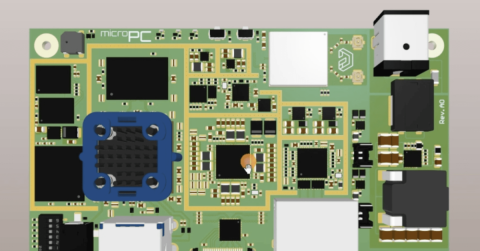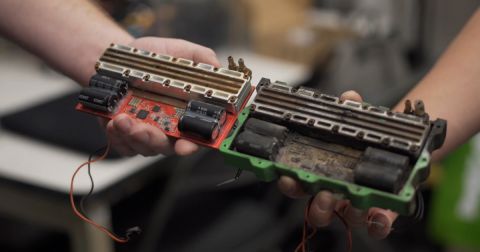Efficient Circuit Board Workflows Enabled by Altium MCAD CoDesigner

Hello engineers! Today, I’m excited to share how Altium MCAD CoDesigner can benefit your workflow when designing printed circuit board assemblies (PCBAs). Get ready to learn how Altium MCAD CoDesigner helps us create custom printed circuit boards (PCBs) to power Ribbot!
Adapting to Unpredictable Project Changes with Flexible Design Tools
Depending on what industry you work in, design timelines can be extremely short, with only weeks or months to deliver a product. In a competitive, fast-paced market, companies succeed by delivering quality products to meet difficult deadlines. In some cases, requirements change mid-project, requiring changes to scope and schedule. Adapting to these design changes quickly and minimizing their impact is an important aspect of what makes companies successful and competitive. This is true at work, especially as we work to design the next iteration of Ribbot.
In an ideal world, requirements are well defined, and system-level requirements are flowed to suppliers with little or no need for iteration. The reality is that, for projects with short deadlines and many companies and disciplines involved, changes are a necessary evil to create a holistic system. Inevitably, a board outline may be tweaked, electrical performance requirements updated to necessitate a larger capacitor to be used, and that connector you thought was in stock is now obsolete. Design changes happen, and we need a design tool that allows us to adapt.
Streamlining PCB Design with Altium MCAD CoDesigner
With Altium MCAD CoDesigner, the ECAD-MCAD design workflow is streamlined to avoid unnecessary process steps. Without the need to generate IDF files, the mechanical and electrical engineer can pass files back and forth to each other within a matter of seconds. This means that changes can happen as frequently as needed to support the design.
A Mechanical Engineer's Survival Guide
Using traditional PCB design tools, it is typical for the ECAD engineer to generate multiple IDF out files for the MCAD engineer as the design progresses. Each time, the MCAD engineer needs to import and build a new IDF file. It’s likely that the MCAD engineer needs to keep track of these revisions to make sure the latest board file has been built and exists within the product database management (PDM) system. Typically, the MCAD engineer will perform a final board file build once the design is officially released.
With Altium MCAD CoDesigner, identifying if a new board file is ready for import is as simple as can be. The integrated MCAD CoDesigner plugin will alert the user if the ECAD designer has pushed changes to the board file. A dialog box will perform a “from-to” comparison and alert the MCAD engineer about what the changes are. With the click of a button, changes are implemented on the existing board file. It’s that easy.
Experience Revolutionary PCBA Design
In a fast-paced, competitive marketplace, it is essential for engineers to work smarter, not harder. The traditional IDF file transfer process can consume a significant amount of time, especially if a design is changing as it matures.
With Altium MCAD CoDesigner, design changes and ECAD-MCAD handoffs are seamless, enabling a truly iterative design workflow. For challenging board file designs, the ECAD and MCAD designers can work exclusively in their own domains and communicate effectively by moving and shifting components until a successful design is achieved. Altium MCAD CoDesigner is a revolutionary leap forward for the PCBA design workflow. Interested? Try it yourself!







